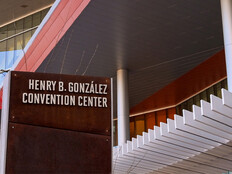Q&A: Miami Device Host Felix Jacomino Digs Deeper into Professional Development
Later this week, some of the leading minds behind modern professional development will gather in Florida for the second Miami Device event.
Last year’s inaugural Miami Device drew a global audience of educators and thought leaders looking for inspirational ways to tackle professional development. For its second year, the event’s organizers have increased the scope with four keynote speakers.
ConnectIT blogger Eric Patnoudes recently sat down with Miami Device’s host, Felix Jacomino, to discuss the origins of the show and the new offerings at this year’s event.
PATNOUDES: Could you please start by giving me some background on Miami Device? How did it start?
JACOMINO: Miami Device came from the desire to obtain the best professional development for teachers at my school, my team and myself. Too often, we would come back from a conference feeling we didn’t learn anything new. We did, however, feel affirmed that what we were doing at St. Stephen’s Episcopal Day School was on track.
PATNOUDES: How did you come up with the idea?
JACOMINO: Schools from all over the world would contact me to learn more about how St. Stephen’s was using iOS devices in a 1:1 environment at the elementary level (we used iPod Touch prior to the appearance of the iPad).
While I felt honored that our school was being looked at as an institution to learn from, I realized there was an underlying problem with almost every inquirer’s questions — they were solely focused on the technology aspect, and the pedagogical questions were far and few between. I attempted to highlight the teaching and learning process; the consistent and quality professional development required; and the deep thinking, collaboration and creativity that was a result of implementing true project-based learning.
Yet, the questions that seemed most important were, “What apps do you use the most?” “How are the teachers able to keep students on task?” and “How do you manage all the devices?”
PATNOUDES: What was your original goal for the conference, and how has that evolved over time?
JACOMINO: Those experiences made me realize the disconnect that can exist between technology and learning. I wanted to change that. At first, I thought I would invite some teachers from neighboring schools so they could see a lesson in action. Then I thought we could do so during a professional development day, with one or two consultants for more variety.
The idea continued to grow, and before long, it was the size and format very similar to a conference. But I was averse to calling it as such and never have.
Miami Device is a learning event, and I would like for all who attend to realize that while technology offers incredible tools, it is not what will change education from what it is today to what it needs to be to suit our students’ needs tomorrow.
PATNOUDES: Who’s been instrumental in making Miami Device happen?
JACOMINO: Silvia Larrauri, my head of school, with the support of our amazing school board, is the main person who gives me the freedom and autonomy to take my ideas and see them through to reality. I am very thankful to her and the school for trusting me in what has been an amazing journey.
St. Stephen’s Technology Team: Ashley Cross, Jenny Diaz, Nerissa Sturrup and Inge Wassmann are the lifeline of all things ed tech in the day to day on campus. They are passionate educators without whom our school’s technology and learning balance would not be what it is today.
Tony Vincent has been instrumental in the change that our teachers have undergone over the last five years. He is an “honorary faculty member” to us and has helped me with many questions I’ve had while putting it all together. I’m convinced Tony’s middle name is Organization.
Carl Hooker is a mastermind event planner and iPadpalooza was one of the main inspirations for Miami Device. Yes, you can have fun and learn simultaneously, as well as contract incredible keynote speakers! It’s always fun when we bounce ideas off each other.
PATNOUDES: Are teachers the ideal attendees? Is there something there for admins, too?
JACOMINO: Anyone involved directly with students or making decisions for them should attend. There is a heavy emphasis on the importance of connecting, having and expanding one’s professional learning network (PLN), and cultivating a growth mindset. Teachers expect their students to learn so they must model that.
This year, we added a leadership track just for administrators. Speakers in that track are Adam Bellow, George Couros, Erin Klein, Angela Maiers, Todd Nesloney, Dean Shareski, Tony Sinanis and Richard Wells.
PATNOUDES: What can you tell us about this year’s keynote speakers and why they were selected?
JACOMINO: We have four keynote speakers this year:
Adam Bellow has been instrumental in my personal evolution from “computer teacher” to “technology integrator” to “director of technology.” His mic-drop closing keynote at FETC 2012 continues to ring true today, and he just keeps on getting better.
Derek Muller, known as Veritasium on YouTube, has a very popular science education channel that I, as a science lover, have enjoyed watching for a long time. He produced a video titled “This Will Revolutionize Education,” in which he lists the many times that statement has been made over the decades, usually with a technological something as the focus, all for us to realize that there is no technology that will replace sound pedagogy.
George Couros’ blog, The Principal of Change, should be read by every administrator and educator on the planet. George knows change, and he shares his journey (both successes and failures) for the rest of us to learn from and to be inspired.
Angela Maiers inspires, and that is how I want every attendee to head back home: inspired. Angela’s passion for literacy and learning is contagious, and as she has said, “Together, we are smarter.” I hope for 340 educators to realize that their time at Miami Device was the beginning of the rest of their professional direction and will continue the conversation indefinitely.
To learn more, visit miamidevice.org.
This article is part of the “Connect IT: Bridging the Gap Between Education and Technology” series. Please join the discussion on Twitter by using the #ConnectIT hashtag.





![[title]Connect IT: Bridging the Gap Between Education and Technology [title]Connect IT: Bridging the Gap Between Education and Technology](http://www.edtechmagazine.com/k12/sites/default/files/articles/2014/05/connectit.jpg)




